April 2024: Olive Tree

Volume IX/Issue 1/April 2024


From The Editorial Desk
Greetings in the name name of our Creator and Sustainer, Jesus Christ.
Springtime is again upon us, and we look eagerly for those signs that confirm that winter is past once again. New life appearing amid the dead grasses both cheers and fascinates us with its beauty, simplicity, and reliability. Resurrection power is demonstrated as little green shoots push determinedly up through the ground. It is a testimony to God’s almighty power and sovereignty.
More cheering than the first blooming crocus is the assurance that God is near and that He is in control. We constantly rely on God’s unchanging nature, almighty power, and faithfulness, yet seldom call it to mind. What if God was not?
The Christian gets up every morning with a smile because the sun appearing above the horizon is God’s daily assurance that “I am the Lord, I change not” and that His mercies “are new every morning.” We reply, “Great is Thy faithfulness.”
Ask the scientist what he would do if sometimes gold would weigh less than talc. Or suppose that some days H20 would produce battery acid. What if some winter, ice would sink instead of float? All of the star maps would be useless if Pleiades would once in a while be in the Big Dipper! But the Cartographer does not even worry about those prospects.
The science teacher who teaches the periodic table of the elements, the position of stars in the sky, and the chemical makeup of table salt is giving unwitting testimony to God, who “[upholds] all things by the word of his power” and “by [whom] all things consist.” Perhaps you could ask an atomic scientist about the result of the withdrawal of that power. Any student of the bible would also be able to tell you as much. But teacher, scientist, and student often forget that their daily studies depend on the fact that God is.
The next time you google a recipe, remember that the recipe is repeatable because God is. If you are a farmer and you hitch the planter to the tractor and pour in the corn seed, remember that you expect a harvest because God is. Children, when you practice math facts, remember that 9 X 9 = 81 because God is.
But all these natural examples of God’s faithfulness are given so that we may also be reminded that, upon repentance, our sins are forgiven because God is. And we can walk daily in holiness of life because God is. And we have hope of eternal life because God is. Truly, because of His unchanging nature, we “are not consumed.”
So, we correctly watch for signs of spring ( or readers in the Southern Hemisphere wait for harvest) because, “while the earth remaineth, seedtime and harvest, and cold and heat, and summer and winter, and day and night shall not cease.” “For I am the Lord, I change not; therefore ye sons of Jacob are not consumed.”
Rejoice! God is!
Implication of The Resurrection
Great truths that are stumbling blocks to the natural man are nevertheless the very foundations upon which the confidence of the spiritual man is built, for “Now faith is the substance of things to be hoped for, the evidence of things that appear not.” (Heb. 11:1). Of course, this is only true when our hopes are based upon the testimony of the Word of God.
That Word is forever settled in Heaven, and like God who gave it, the Word is unshakable. Men may cavil or quibble regarding its teachings, but “what if some of them have not believed? shall their unbelief make the faith of God without effect? God forbid.” (Rom. 3:3). It is written in the Prophets, “He…does not call back his words,” (Isa. 31:2). The reverent Christian will, therefore, accept without question what has been revealed in Scripture, even though it may be beyond his powers of comprehension.
When Festus, the Roman governor of Caesarea, explained his perplexity concerning Paul’s case to King Agrippa, he expressed his wonder that the accusers of the apostle had nothing definite to bring against him.
But had certain questions of their own superstition against him, and of one Jesus deceased, whom Paul affirmed to be alive (Acts 25:19).
To Festus, this was such a manifest absurdity that he thought it hardly worth considering. He evidently knew that Jesus had died. It was a matter commonly reported and he accepted it as truth. But that any sane man could believe that Jesus was alive again seemed to the cynical Roman utterly absurd and ridiculous. And yet the entire superstructure of Christianity rests on this great fact.
Christ’s Resurrection— and Ours
I purpose noting several implications drawn from the truth of Christ’s resurrection, as set forth, not in the four gospel accounts, but elsewhere in the Word of God. In the well-known resurrection chapter (I Cor. 15), we are told:
12 Now if Christ be preached, that he arose again from the dead, how do some among you say, that there is no resurrection of the dead?
13 But if there be no resurrection of the dead, then Christ is not risen again.
14 And if Christ be not risen again, then is our preaching vain, and your faith is also vain.
15 Yea, and we are found false witnesses of God: because we have given testimony against God, that he hath raised up Christ; whom he hath not raised up, if the dead rise not again.
16 For if the dead rise not again, neither is Christ risen again.
17 And if Christ be not risen again, your faith is vain, for you are yet in your sins.
18 Then they also that are fallen asleep in Christ, are perished.
19 If in this life only we have hope in Christ, we are of all men most miserable. (I Corinthians 15:12-19)
In these verses, the Holy Spirit develops for us and vigorously defends this great fundamental truth of Christian testimony. Some in Corinth were denying the physical resurrection of mankind generally. To them it seemed impossible that the dead should be brought again to life, but Paul shows that to deny the resurrection of mankind necessarily involves the denial of Christ’s resurrection. If He has indeed been raised, and apart from this fact there would be no Gospel to preach, why then should any question the power of God to bring back from the dead the millions who have died through all the millenniums of earthly history?
Surely He who could create a universe out of naught and who brought our physical bodies into existence so marvelously in the first place could resuscitate them even after they had dissolved away into their chemical elements! The miracle of each returning spring bears witness to this. As one looks out upon the apparently lifeless trees of winter, he might well question the possibility that verdant groves would again dot the landscape, but in some mysterious way, the trees are enabled to draw from the earth the life-giving sap with all its chemical elements which cause leaves, flowers and fruit soon to appear.
Certainly if one had never seen this miracle performed, he would conclude the first time that winter spread its blanket over the earth, that all things green and lovely had disappeared forever. But in a very short time, he would find his reasoning was based upon false premises.
Bodily Resurrection
Our faith is based on facts as real as the observed processes of nature. There are those who teach today that our Lord Jesus never came out of the grave in His material body. They admit His continual existence in spirit but deny His physical resurrection. But there can be no question as to the testimony of Holy Scripture. There we learn that our blessed Lord arose from the dead in the very body in which He had suffered and died for our sins, though changed in a most wonderful way. Nevertheless it was a real, material, human body, and we know that it bore the print of the nails in the palms of the hands. There was still the mark where the Roman spear had pierced His side, and one can scarcely question but that these evidences of Christ’s love for His church will be seen upon His glorified body throughout all the ages to come. When John the Beloved gazed upon the throne in glory, he saw in the midst of it “a Lamb standing as it were slain” (Revelation 5:6)
The redeemed of the Lord will see in those scars the testimony to a love that was stronger than death and which the many waters of judgment could not quench. To Thomas and the other disciples, these were the sure evidence that He who appeared in their midst was the same Jesus they had known and loved before He went to the cross. He said to them, “See my hands and feet, that it is I myself; handle, and see: for a spirit hath not flesh and bones, as you see me to have.” (Luke 24:39).
The implication of Christ’s bodily resurrection is that if the power of God was put forth in raising Christ from the dead, it is folly to question His ability to raise up the dead bodies of His saints as well as of all men generally. In fact, so definite is the apostle as to this that he insists, “For if the dead rise not again, neither is Christ risen again.” (I Cor. 15:16).
Proof of Our Redemption
What, then, would be the next implication? Why, “If Christ be not raised, your faith is vain; ye are yet in your sins” (vs. 17). In other words, if our Saviour did not come forth in triumph from Joseph’s new tomb, then we have no Gospel to preach to lost men. A dreaming poet may speak of the body of Jesus still sleeping in a Syrian tomb but that is only the language of unbelief. If it were true, there would be no redemption for lost sinners…no salvation for guilty men.
All our hopes rest upon the fact that He who was delivered up to death for our offenses was indeed raised again for our justification. During the time that the body of our Lord lay in the tomb, there was no one on earth who could be sure that redemption was an accomplished fact. If He had not risen, it would have been sure evidence that He was either deceived or a deceiver, for He had predicted His resurrection as well as His sacrificial death.
The fact that He rose from the dead proves that His great oblation upon the cross has satisfied the claims of divine righteousness and has met every requirement of infinite holiness. God has raised Him from the dead in token of the satisfaction He has found in His work; He now sets Him forth a Prince and a Saviour.
The Essential for Victorious Living
“If Christ be not raised, your faith is in vain; ye are yet in your sins.” All the millions of saintly souls who have testified to their faith in Christ throughout what we call the Christian centuries were utterly mistaken if Christ did not rise from the dead. But then the amazing thing to be accounted for is this: What was it that wrought such changes in their lives, that turned them from sin to righteousness, that delivered them from worldliness and selfishness and conformed them to the image of Christ? According to the Word of God, it is as believers are occupied with the risen One that they become like Him. Let those who deny His resurrection try to explain the transforming power of this faith in Him, who, according to the unbelievers, no longer has any existence.
The apostle’s conclusion is that if Christ is no more than a master teacher, if He is only a guide, if His instruction is only meant to serve as a light for our pathway through this world, if the Christ who died has not been raised, we who profess faith in His name, who gladly give up the things of the world for love of Him, are of all men most to be pitied. In that case we are but following a will-o’-the-wisp, a delusion, for the sake of which we are surrendering much that men of the world value. But the experiences of untold millions of Christians prove that the risen Christ is the joy and satisfaction of the hearts of all who thus yield themselves to Him.
Consider the case of Saul of Tarsus. We see him hastening along the Damascus Road, bitter hatred filling his heart for Jesus of Nazareth and for all who confess His name. But suddenly, the heavens are opened, and the light brighter than the sun shines upon the wayward persecutor. A voice from Heaven cries, “And falling on the ground, he heard a voice saying to him: ‘Saul, Saul, why persecutest thou me?’ Who said: ‘Who art thou, Lord? And he: I am Jesus whom thou persecutest.” (Acts 9:4, 5).
A tremendous change that Jesus called being “born again” takes place when Annanias obeyed the Lord Jesus and went to Saul and healed him and baptized him. Saul of Tarsus becomes a new creation and soon goes forth as Paul the apostle to preach the faith that once he destroyed. It was his contact with the risen Christ that wrought the miracle, as it has wrought similar miracles in the hearts and lives of untold thousands since.
This message was what the early Fathers proclaimed everywhere they went. They preached, “Jesus and the resurrection.” Notice that it was not enough to preach Jesus. It was not enough to enlarge upon His excellencies. It was not enough to dwell upon the perfection of His life. It was not enough to occupy people with His sacrificial death. There was something more than this:
“This Jesus hath God raised again…God hath made both Lord and Christ, this same Jesus, whom you have crucified.” (Acts 2:32, 36)
This was the message of Pentecost. This was the message that God has blessed and used throughout the centuries in the salvation of millions of souls, and this is the message for the preacher today, the only message that will ensure the eternal salvation of all who believe it.
Please Send Somebody!
26 And besides all this, between us and you, there is fixed a great chaos: so that they who would pass from hence to you, cannot, nor from thence come hither.
27 And he said: Then, father, I beseech thee, that thou wouldst send him to my father's house, for I have five brethren,
28 That he may testify unto them, lest they also come into this place of torments. (Luke 16:26-28)
When the “certain rich man” died (vs. 19), he went to Hell (vs. 23). He was on Earth one minute and in Hell the next. There were no layovers, no time-lapses; He instantly went from having everything to having nothing. His laughter quickly turned to lamenting.
Realizing he could not escape the horrors of Hell, he made a plea on behalf of his family. Not wanting his “five brethren” to “come into this place of torment,” he urged Abraham to send Lazarus to warn his brothers. The essence of his request was, “Please send somebody!”
But Abraham, Lazarus and the rich man were all dead. Consequently, none of them could be the needed “somebody.”
As long as you and I have breath, we can be the “somebody” who will bear the Good News of salvation and the warning about judgment and Hell. Let’s note that:
-
The “certain rich man” didn’t go to Hell because he was well-to-do. He went to Hell because he was a lost sinner, unsaved and he did not have a Saviour
-
The “certain rich man” may not have been horribly wicked but he went to Hell. The context of Luke 16 tells us nothing about his character or behavior. It makes me think he might have been a pretty decent man but the fact is—he went to Hell.
-
The “certain rich man” proves that a man cannot leverage his way into Heaven with his money.
-
The “certain rich man” lays bare the reality of Hell and its horrors. “…he was in torments” (vs. 23), “…he cried…” (vs. 24) and “…tormented in this flame” (vs. 24)—this man speaks the truth of his miserable state in Hell.
-
The “certain rich man” will have no relief and no release from his eternal incarceration in Hell (vs. 26).
-
The “certain rich man” will have a full memory of the “good things” of his former life on Earth (vs. 25).
-
The “certain rich man” has a powerful message for us. “Please send somebody,” is his heart cry. Abraham couldn’t do it but we are commissioned of the Lord to be His ambassadors (II Cor. 5:20; Matt. 28:19, 20; Acts 1:8).
Today’s “rich man” or any man with his “five brethren” is still alive. They are not in Hell yet but will be someday if “somebody” does not go to them and bring them in (Luke 14).
So, let’s take our responsibility seriously. Let’s live out our Catholic faith. Let’s fire things up at our parishes. Let’s knock on doors (as the Legion of Mary does). Let’s start with in our parishes programs like Saint Paul Street evangelism. Let’s not let anybody go to Hell from our “Jerusalem” (Acts 1:8) without them at least having the opportunity to hear the Gospel.
Those three words stir my heart and motivate me. I can hear it now— “Please send somebody!” How about it? Will you be the “somebody” where you live?
Israel remains defiant as UN Security Council passes Gaza ceasefire resolution while US abstains
(LifeSiteNews) — After nearly six months and several attempts, the United Nations Security Council (UNSC) passed a resolution on Monday calling for an immediate ceasefire between Israel and the Palestinian militant group Hamas in the Gaza Strip along with the release of all hostages and the removal of all obstacles for humanitarian aid.
After several previous vetoes of similar measures, the delegation representing the Biden administration, led by Ambassador to the United Nations Linda Thomas-Greenfield, abstained while the other 14 member states all voted in favor of the measure.
With this resolution, the UNSC demands “an immediate ceasefire for the month of Ramadan respected by all parties leading to a lasting sustainable ceasefire.” The Muslim penitential season ends in two weeks.
The measure further “demands the immediate and unconditional release of all hostages, as well as ensuring humanitarian access to address their medical and other humanitarian needs.”
The UNSC reemphasized the latter point, reiterating “its demand for the lifting of all barriers to the provision of humanitarian assistance at scale, in line with international humanitarian law.”
With Israel’s continued infliction of overwhelming damage and loss of civilian life, the Biden administration has shown signs of increasing rhetorical frustration with its state partner even as it has simultaneously continued to provide an uninterrupted weapons supply facilitating the ongoing onslaught.
“We did not agree with everything with the resolution,” Thomas-Greenfield said after the vote, explaining the reason the U.S. abstained. “Certain key edits were ignored, including our request to add a condemnation of Hamas.”
She also indicated that the U.S. abstention was due to the fact that the ceasefire was not explicitly conditioned on the release of hostages. “Any ceasefire must come with the release of all hostages,” she said.
Though the White House said declining to veto the resolution did not represent a change in policy toward the conflict, Israel Prime Minister Benjamin Netanyahu’s office called this a “clear retreat” and cancelled sending a high-level delegation to Washington due to the Biden administration’s new position.
White House officials had requested to meet with Israeli officials to discuss the latter’s stated intention to attack Rafah in Southern Gaza, where an estimated 1.2 million displaced Palestinians have been sheltering.
Due to the concentration of civilians, the vast majority of whom are children and women, aid groups struggling to operate in the Strip have warned that any Israeli military advance in this location will bring about a “bloodbath” with humanitarian assistance already on the brink of collapse.
Last week, Netanyahu said Israel would attack Rafah with or without the support of the United States despite the fact that even retired Israeli major general Yitzhak Breck affirmed in November that “the minute” the U.S. ceases to provide the weapons necessary for this attack, “you can’t keep fighting. You have no capability … Everyone understands we can’t fight this war without the United States. Period.”
While much work still needs to be accomplished, the vote remains a “very, very significant” development, according to James Bays, diplomatic editor for Al Jazeera.
“The U.S. has used its veto three times,” he said. “This time, the U.S. let this pass.”
“Resolutions of the Security Council are international law. They are always seen as binding on all the member states of the United Nations,” Bays added.
French Ambassador Nicholas de Rivière affirmed “the adoption of this resolution demonstrates that the Security Council can still act when all of its members make the necessary effort to discharge their mandate.”
“This crisis is not over. Our council will have to remain mobilized and immediately get back to work,” he said. “After Ramadan, which ends in two weeks, it will have to establish a permanent ceasefire.”
Since the besieging of the Strip after the October 7 attack by Hamas, the Israelis have killed, according to reports, at least 33,138 people, including 32,682 in Gaza (14,280 children, even by sniper fire, 9,340 women), and at least 435 in the West Bank (115 children), with injuries numbering 74,188 in Gaza and 5,000 in the West Bank (725 children). Additionally, an estimated 7,000 individuals are reported missing and are presumed dead and buried under the rubble (4,900 women and children).
Moreover, 1.7 million (75%) of Palestinians in Gaza are displaced, and 2.2 million are facing crisis, emergency, or famine levels of food insecurity with at least 31 deaths (27 children) being reported thus far due to malnutrition.
Furthermore, with hundreds of American-made 2,000-pound bombs being dropped on this most populated region in the world, an estimated 50% to 62% of all buildings in Gaza had been damaged or destroyed by the end of January alone.
The observer state of Palestine welcomed the new resolution as a step in the right direction.
“This must be a turning point,” Palestinian Ambassador Riyad Mansour told the UNSC.
“This must signal the end of this assault of atrocities against our people,” he said, declaring his entire nation was “being murdered.”
According to Al Jazeera, Hamas welcomed the resolution, saying in a released statement that it “affirms readiness to engage in immediate prisoner swaps on both sides,” making reference to the approximately 9,000 Palestinian political prisoners (i.e. “hostages”) being held by Israel.
According to reports, Hamas abducted over 240 hostages in its criminal attack on October 7, with an objective to exchange them for Palestinians being held by Israel. Following earlier prisoner swaps, around 130 hostages remain in the custody of Hamas.
Up until this time, Israel has rejected Hamas’s offer to free all Israeli hostages in exchange for a permanent ceasefire and the release of Palestinian prisoners. However, Netanyahu has maintained his objective to “eradicate” Hamas, which both Israeli and U.S. intelligence sources believe is unrealistic.
With Israel’s long history of disregarding multitudes of UN resolutions ratified by overwhelming majorities of nations, Israeli Defense Minister Yoav Gallant responded to the recent UNSC act, asserting Israel had “no moral right to stop the war in Gaza until we return all the hostages to their homes.”
Upon the resolution’s passage, UN Secretary-General Antonio Guterres summarized its content in a tweet on X, asserting that it “must be implemented. Failure would be unforgivable.”
Infamous Chicago abortion facility calls 911 for woman suffering ‘injury to her uterus’
(Live Action) — Family Planning Associates, an abortion facility in Chicago with a long history of injuring women, sent another woman to the emergency room by ambulance with what was described as “an injury to her uterus.”
Pro-life watchdog group Operation Rescue reported that 911 was called after a 28-year-old patient was injured on November 1, 2023. In the 911 call, which was obtained by the Pro-Life Action League, abortion business staffers asked that the woman be taken to Northwestern Hospital, where “their doctor” is on staff.
“We have a patient who just had an abortion with us,” the staffer said in the call. “She has a minor injury to her uterus. She’s stable, vitals are stable, hemoglobin is stable, but we want to take her to Northwestern, where our doctor is on staff, for monitoring overnight.”
Oddly, the staffer then explained that she only called 911 because, after calling a “regular transport service,” no one responded, likely indicating that they tried to call a private ambulance company instead of 911. She then instructed the ambulance to go to the back of the facility, by a loading dock. The 911 operator tried to get more information about the injury, but the staffer remained vague.
“She has an injury to the uterus, so there is some intra-abdominal bleeding, but not much,” she said when asked if the patient was awake and breathing, and if she was hemorrhaging. Further details are unknown, but uterine lacerations and perforations are known risks for all surgical abortion procedures.
Chicago has a history of looking the other way when it comes to Family Planning Associates, even refusing to release 911 records, though the federal Freedom of Information Act requires these records to be made available once identifying health information has been redacted.
Family Planning Associates has a long history of injuring women, with known complications including hemorrhaging and incomplete abortions in addition to some patients not waking up after being dosed with propofol. One abortionist at the facility, Allison Cowett, has been sued for malpractice 10 times. At least three patients are known to have died at Family Planning Associates, including a 13-year-old girl.
Maternal mortality rates in the US have been greatly overestimated, new study finds
(Live Action) — A new study published in the American Journal of Obstetrics and Gynecology found that a simple change in how death certificates were filled out could have led to an overestimation of the U.S. maternal mortality rate.
In 2003, a box was added to death certificates asking if the deceased was pregnant at or near the time of death; this led to a supposed 143 percent increase in maternal mortality deaths since 1999. But researchers reviewed the data from the National Center for Health Statistics (NCHS), and found that maternal mortality deaths, in actuality, remained relatively stable, with just a 2 percent increase within that time period.
“There has been a lot of alarm and apprehension surrounding the fact that some of these reports show a threefold increase in maternal mortality, and that is not what we found. We found low and stable rates,” K.S. Joseph, the study’s lead author and professor in the departments of obstetrics and gynecology and the School of Population and Public Health at the University of British Columbia, told the Washington Post.
Direct deaths from pregnancy – like pre-eclampsia or hemorrhage – declined, though indirect deaths from pregnancy – such as a woman with pre-existing conditions exacerbated by pregnancy – increased. And black women were still found to have disproportionately high rates of maternal mortality.
Maternal mortality is frequently used as an excuse to expand legal abortion; states like Texas have been accused of experiencing spikes in maternal mortality rates due to defunding Planned Parenthood. Pro-life states have even been alleged to have higher maternal mortality rates than pro-abortion states. This claim has been thoroughly debunked – including by the Washington Post.
Abortion is frequently suggested as a solution for lowering maternal mortality rates, though this idea is also false. Across the globe, statistics have shown that legal abortion does not lower the maternal mortality rate. In Ethiopia, for example, abortion was legalized specifically with the goal of lowering maternal mortality rates (MMR); instead, they increased after abortion’s legalization. A 10-year study published in the peer-reviewed medical journal BMJ Open found that in Mexico, “states with less permissive abortion legislation exhibited lower MMR” than those where abortion was allowed.
Maternal mortality is still a serious issue, especially for black women, and it’s vital that doctors and politicians continue working to decrease pregnancy-related deaths. But intentionally killing preborn children is not the answer – nor should women be scared into abortion with outdated, inaccurate statistics about pregnancy risks.
Catholic charity used federal funds to promote abortion, contraception in Africa: report
(Lepanto Institute) — For over a year, the Lepanto Institute and Population Research Institute (PRI) conducted a joint investigation into Catholic Relief Services projects in three African countries: Cameroon, Zimbabwe, and Lesotho. Through a combination of primary resource materials obtained from federal documents, Catholic Relief Services (CRS), and CRS project partners and sources, as well as information and materials obtained by a team of researchers in these three countries, Lepanto and PRI have concluded that CRS is morally complicit in the promotion and spread of condoms and contraception through federally-funded projects.
In a press conference on Wednesday, March 6, 2024, Lepanto and PRI announced the publication of this report, providing key details and evidences contained within it. The press conference can be viewed here:
The fully detailed, 130-page investigative report can be read here, and the executive summary for the report is published below.
Executive summary
The Lepanto Institute and the Population Research Institute recently completed a field investigation of Catholic Relief Service’s projects in Cameroon, Zimbabwe, and Lesotho.
We initiated the investigation out of concern that CRS had led the implementation of a PEPFAR program called “Determined, Resilient, Empowered, AIDS-Free, Mentored, and Safe women” (DREAMS) in several African countries, and that in this context was promoting condoms and contraception as well as implementing health referral networks that included abortion and contraception promoters and providers.
Over the course of a year, LI and PRI received from our investigators thousands of pages of documents, recorded conversations, and photographs that, taken together, reveal that CRS has, in multiple countries, referred girls as young as 10 to abortion and contraception providers, been the “prime implementer” of projects that, through a network of partners, is designed to spread and promote contraception and condoms, and has even been corrupting the good morals of young girls with its own materials.
This report contains three chapters, which present our findings about CRS’s activities in Cameroon, Zimbabwe, and Lesotho, respectively:
In Cameroon:
-
CRS led the implementation of the KIDSS project in Cameroon, which meant it had overall responsibility for funding and implementing the project in all its aspects.
-
CRS produced material, bearing CRS’ logo, which promotes masturbation, “safe sex,” and discourages engaging in sexual activity without using a condom.
-
-
As will be explained in the report, the promotion of masturbation was adapted from a program called My Changing Body, which CRS implemented in Rwanda but publicly denied that it had done so.
-
-
CRS partnered with RENATA, an abortion-minded organization, referring girls to RENATA for sexual and reproductive health (SRH). CRS’ partnership with RENATA, which included funding, appears to have violated the Mexico City Policy then in force, given that RENATA was simultaneously advocating for the legalization of abortion in Cameroon, an activity forbidden to grantees or subgrantees.
-
CRS created a health referral network that included organizations that push contraception, including RENATA, Horizons Femmes, SWAA, and others.
-
The CRS-led KIDSS project formally ended in 2023. But it essentially continued under a new name, CoSMo, and with a new lead organization, the National Episcopal Conference of Cameroon (NECC). CoSMo relies upon the same referral network with RENATA, Horizons Femmes, SWAA, etc., and CRS continues to help guide the project.
-
CRS’ project manager for the KIDSS project, who continues to be employed as Zonal Manager for CoSMo, is an abortion and contraception proponent.
-
Catholic hospitals in Cameroon have been enlisted as partners in the CoSMo project and provide pornographic sex-education materials promoting contraception and condoms. The materials themselves are supplied by CARE and Georgetown University, organizations that CRS often partners with.
In Zimbabwe:
-
CRS led the implementation of the DREAMS project in Zimbabwe, which ran from 2018-2022, through a project called Pathways.
-
One of the prime goals of DREAMS is “Increasing Contraceptive Method Mix,” that is, encouraging the use of both condoms and long-acting contraceptives (IUDs, contraceptive implants, Depo-Provera), among adolescents and young girls in “vulnerable populations.”
-
CRS’ implementing partners – organizations to which girls enrolled into DREAMS by CRS would be sent – were responsible for fulfilling the project requirements to promote and provide condoms and contraceptives.
-
-
CRS’ own chief of party in Zimbabwe confirmed that these referrals were done with CRS’ direct knowledge and consent. A video conference on Pathways held by CRS also confirms this.
-
-
-
CRS’ Pathways partners Caritas Zimbabwe, JP Kapnek, Musasa, Salvation Army, and Africaid all promote contraception. Africaid even stated that CRS gave them access to 6th-grade children where they handed out condoms, stating that CRS knew about the condoms and did not object.
-
-
-
CRS’ Pathways partner Childline Zimbabwe, in addition to promoting and providing contraception, also refers girls for abortion.
-
-
-
CRS’s Pathways project directly collaborated with public outreach campaigns, such as Stop the Bus, that were explicitly designed to spread condoms.
-
In Lesotho:
-
CRS’ 4Children project included pornographic sex education and referred girls to contraception peddlers through the overarching DREAMS project.
-
The Go Girls! educational manual in use, a copy of which was provided to our local investigators, was identical to one we had earlier discovered online. It includes sexually explicit, not to say pornographic, content.
-
Caritas and other DREAMS partners confirmed our concerns that girls were being sent to contraception peddlers such as Population Services International (PSI) during “community service days” as an integral part of the project.
-
Through KB’s “Community Service Days,” during which condoms were openly demonstrated and distributed, CRS was responsible for coordinating “linkages to services” among the various DREAMS partners.
-
CRS remains actively involved as an “implementing partner” in the successor project to DREAMS, which is called Karabo ea Bophelo (KB). One of KB’s primary goals, which we repeatedly confirmed in interviews and primary source materials, was to “increase contraceptive prevalence” among Lesotho youth. In other words, it is an anti-natal population control program.
-
In the course of meetings at KB headquarters that included CRS representatives, our investigator saw large boxes of condoms being unloaded from a van by KB staff, and a box of condoms in the bathroom, graphically illustrating the projects’ purpose.
-
A contraception-promoting curriculum called Stepping Stones, currently in use by KB in Lesotho, has previously been used by CRS in other countries.
-
Conclusions and recommendations
-
Archbishop Gerard Lerotholi of Lesotho echoed the concern of many African bishops we have spoken to over the years when he told our investigators that he couldn’t “vouch for CRS” because CRS neither informs him about its activities in his archdiocese nor takes the views of the local Church into account.
-
Based on our field research in Lesotho, Zimbabwe, and Cameroon, we can see why CRS would want to shield its activities from scrutiny by the local Church. Its partnerships with the USAID/PEPFAR projects we investigated virtually requires CRS to make grave moral compromises, not to say completely abandon its Catholic identity, in favor of a pose as a secular NGO.
-
This is born out in CRS’ purchase and use of inherently immoral sex and HIV educational materials. Regardless of whether CRS “adapts” certain parts of such materials for its own use or not, the idea that CRS can “carve out” a kind of “safe space” within a gravely immoral curriculum – itself the product of radically pro-abortion agencies devoted to spreading the contraceptive mentality and reducing the birth rate – is flawed and should be abandoned.
-
The gravity of our current findings is further underlined because they confirm that CRS is continuing a long pattern of questionable behavior. Over the past decade the Lepanto Institute and the Population Research Institute, both separately and together, have repeatedly raised concerns about Catholic Relief Services’ involvement in projects that promote pornographic sex education, condoms, and contraceptives.
-
In 2013, Population Research Institute (PRI) published the results of a month-long investigation into CRS projects in Madagascar. PRI’s report found “that CRS is using funding from American Catholics to distribute contraceptive and abortifacient drugs and devices in concert with some of the world’s biggest population control/family planning organizations.”
-
In 2015, the Lepanto Institute (LI) and PRI published the results of a year-long collaborative investigation into a CRS-led project in Kenya called SAIDIA. Through official documents obtained online from USAID, PEPFAR, and CRS, along with information collected from field research in Kenya, we concluded that CRS had implemented a contraception-promoting program called Healthy Choices 2 and a condom-promoting program called SHUGA in that country.
-
Over the years, other notable Catholic scholars have joined in the criticism. Reacting to reports of CRS promoting condom use, noted theologian Germain Grisez in 2011 called for a formal investigation of CRS. Grisez asked, “Why does Catholic Relief Services forbid putting its logo on the ‘educational’ materials it provides about HIV and condoms?” Grisez called CRS’ policy regarding condoms “troubling,” and rightly questioned the nature of CRS’ partnerships with contraception and abortion-promoting organizations.
-
In response to our reports, CRS has repeatedly attempted to deflect and deny that it was in any way complicit in, or responsible for, the objectively immoral aspects of the projects that it implemented. For example, when asked about the contraception-promoting program called Healthy Choices 2 (HC2) mentioned above, CRS responded in a letter to Population Research Institute and the Lepanto Institute that the PEPFAR document in question, indicating that CRS had implemented Healthy Choices 2, was mistaken and that the matter would be corrected.
-
The PEPFAR document was duly removed from the government website and a new version redacting all indications that CRS had implemented Healthy Choices 2 was uploaded in its place. We suspected that CRS was not being entirely candid, however, and submitted a FOIA request to USAID for the original documents outlining the project. These proved that CRS had indeed implemented Healthy Choices 2, as well as SHUGA, despite its attempts to first deny and then cover up its involvement, apparently with the complicitly of PEPFAR administrators.
-
It is the sincere hope of the Population Research Institute and the Lepanto Institute that the troubling facts contained in this report inspire the bishops of the United States to recognize the inherent danger of allowing its international aid and development agency, Catholic Relief Services, act as an arm of the federal government in carrying out government-funded Sexual and Reproductive Health projects. Such projects always, whether funded under the aegis of PEPFAR or another USAID health program, invariably involve the promotion and/or provision of contraception and condoms and require direct collaboration with organizations that peddle the same.
-
Pope Benedict XVI’s motu proprio, On the Service of Charity – still in effect – gives specific instruction on the reception of funds from organizations that peddle sexual immorality:
-
Art. 10. § 3. In particular, the diocesan Bishop is to ensure that charitable agencies dependent upon him do not receive financial support from groups or institutions that pursue ends contrary to Church’s teaching.
-
Similarly, lest scandal be given to the faithful, the diocesan bishop is to ensure that these charitable agencies do not accept contributions for initiatives whose ends, or the means used to pursue them, are not in conformity with the Church’s teaching.
-
There is no doubt that both USAID and PEPFAR – which separately or jointly funded every single project detailed in this report – are organizations that “pursue ends contrary to the Church’s teaching.” It is our view that CRS’s entanglement in such projects, which takes varying forms, makes CRS an accomplice to the moral crimes illustrated herein. Involvement in such programs is an occasion of scandal for the faithful, both in Africa and in the United States.
-
We suggest that, rather than taking federal funding, CRS should rely on the goodwill and generosity of American Catholics for spiritual and financial assistance in carrying out international aid and development projects that fully comport with Catholic teaching.
-
We further recommend that, in carrying out such projects, that CRS should first seek the permission of each and every local bishop in each and every diocese that it intends to operate in, fully disclosing every aspect of the project and promising full cooperation with the diocese. Bishops are, after all, tasked with protecting and promoting the spiritual welfare of their flock, and would and should be the first and best judge of whether a given project would help or harm souls.
-
As our report demonstrates, this is not currently the case. In our view, the bishops who serve on CRS’ board of directors have both a moral and a fiduciary responsibility to ensure that CRS withdraws from such programs.
-
Indeed, as Germain Grisez noted a decade ago, “Faithful Catholics who have donated to CRS in recent years for AIDS relief did so because they expected the program to be carried out in a distinctively Catholic way. Had they not expected this, they could have donated to a secular organization fighting AIDS. If CRS officials have used donations otherwise than they have led donors to expect, CRS officials have misappropriated those funds.”
-
Our review of CRS’ USAID/PEPFAR practices in several African countries strongly indicates that the concerns that prompted our, and Germain Grisez’s, earlier concerns remain essentially unresolved.
-
At the present time we do not see how lay Catholics can in good conscience support or donate to Catholic Relief Services. We recommend that the bishops of the U.S., both individually and collectively, withdraw their support as well.

Frequently Asked Questions

What Is A Man?
Man is a living being, endowed with a sensitive material body, and a spiritual soul which is immortal of its very nature, and which rejoices in the two spiritual faculties of intelligence and freewill.
For answers to more frequently asked questions, click here: https://www.vaticaninexile.com/frequently_asked_questions.php
The Pope Speaks

The Danger of Divine Mercy Devotion
Last April 7, 2024 Dominica in Albis, low Sunday , the Novus Ordo Sect celebrated the Feast of the Divine Mercy worldwide following the decree of Anti- Pope John Paul II in April 30, 2000.
Millions of Catholics are hooked up with this devotion yet majority of them are unaware that it is dangerous to the Catholic faith.
Why is the devotion to the Divine Mercy dangerous?
Pope Pius XII placed these writings of Sr. Faustina Kowalska and the so called apparition into the Index of Forbidden books. ( Index librorum Prohibitorum ). Unfortunately this index was abolished during the reign of Anti- Pope Paul VI in 1966. The Holy Office was convinced that the Divine Mercy apparition did not come from the Lord. In as much as it was not authentic apparition, the Feast day of the Divine Mercy can not be established. The writings of Sr. Faustina Kowalska and the image of Divine Mercy cannot be propagated in as much as there are doubts concerning the contents. Like Sr. Faustina seem to be holier than padre PIO or the Blessed Virgin Mary. There's a portion in her writings that she sought a public recognition of her sanctity. Which a real saint can hardly desire.
Inspite of the foregoing propositions, the Divine Mercy Devotion thrive in as much as John Paul II, who was hailed from Poland, a countrymate of Sr. Kowalska , propagated it's devotion during his reign. From the macro level standpoint, it had a political undertone.
It is very true that Our Lord is merciful and full of compassion. There's no doubt about it. Yet too much stress on Mercy in order to pave way to false ecumenism, false religious dialogue and false synodality would be detrimental to our Catholic faith. Compassion now is maximize in order to justify multiplication of LGBTQI community. The slogan, God is merciful is maximize to justify sodomite relationship. The reality of Hell is now relativised. As if the gate of Heaven is open and wide . And no longer seek the narrow gate. As taught by the Gospel.
When someone neglected to hear the Holy Mass, that someone will say, " God understands me " ; When somebody is in a live in relationships for almost a decade, she will say, " God understands me." Without any effort to seek Church wedding.
There's a trend circulating among retreat, recollection or seminars like the words, " Be true to your self ", "follow your heart" " believe in your self. " " Live your truth " " so long that you are happy " these words emphasized that the god now is man . Man today becomes the Christ. This is actually the theology of Karol Wojtyla. In his ' Redemptor Hominis " He emphasized that Man is the suffering Christ. It follows therefore that Man today is the Christ. Man today is the god.
We are not perplexed if we witness thorough disobedience in Man to Authority especially in the Hierarchy of the Church. Man is a selfish man. And the Divine Mercy Devotion is fitting for the wants of the selfish man. " The Lord is merciful and forgiving." anyway, they said.
But My dear Brothers and Sisters in the Lord, our Lord is a just God. He hates sin and desires the sinner tobe converted. The Sacred Heart of Jesus calls for conversion, metanoia, change of heart not merely forgiveness without any reparation. The chaplet of Divine Mercy Devotion seem to relativised the use of the Rosary. Having the Divine Mercy chaplet weakens the use of the Rosary by providing people an alternative.
For those who really inclined to the Divine Mercy Devotion, you may do it privately but it was never an official or mandated by the Catholic Church.

Advice You Can Bank On
A Catholic Perspective On Finances
Protect Yourself from Wolves in Sheep’s Clothing: Scammers
Did you see the recent headline of three men posing as pastors to scam about 1,200 unsuspecting, gullible Christians out of more than $20,000,000 in three states with an investment scheme called “1st Million”?
How about the California pastor who swindled his very own congregants out of a million dollars in a Ponzi scheme?
Or the Christian politician who conned folks out of millions in an “end-times” coin scheme?
This widespread crime is known as affinity fraud.
Like defrauders who target groups such as seniors and military veterans, there are those who target people of faith.
How to Spot the Con Artist
-
Lifestyle. You will seldom meet a scammer that looks down-and-out or in humble circumstances. Typically, they wear nice clothes, flashy jewelry, show up in expensive cars, and live in luxury – homes, boats, airplanes, helicopters, etc. They want to give an appearance of success and pretend that they don’t need you, that you need them.
-
Likable People. To con someone, you have to first win their trust. Scammers have made it an art to quickly make a friendship and do whatever is necessary to build trust. They may even pretend to be humble and willing to be generous with your needs. They want the possibility that they are a bad person to be the farthest thing from your mind. Don’t be surprised if there are some in your circle of friends who may be capable of cheating you out of your money if they become desperate enough.
-
Making a Connection. The fraudster wants you to believe you have something in common that makes them a familiar or normal person. Do you have faith? They have faith. Do you like dogs? They like dogs. Did you lose a son in the war? They lost a son in the war, too. Typically, they will weave a series of connections built upon lies to create a false sense of security.
-
Attention-Grabbing Returns on Your Money. Since most people are not interested in making a change unless something seems worth the effort and the risk, con artists will assure you that they are doing better than others in their business, their line of work, their field, or in the whole world. If the average Joe is getting 6% on their retirement funds, Mr. Big Shot is getting 20%, year over year, with very little risk of loss.
-
Emotional Selling. The age-old emotions that move people to part with their money are fear and greed. Almost universally, a con man will use one or both of these appeals to attempt to get you to take action. Using a fake deadline, they will convince you to be afraid of missing out on the opportunity of a lifetime if you do not sign on the dotted line now.
-
Selling Smoke and Mirrors. The common denominator is that the con man has nothing of value to offer you but must deceive you into believing that he or she does. This means that any effort to get facts, documents, references, historic records, and information to support the investment claims will be met with complex stonewalling, falsified documents, or an accomplice willing to lie on their behalf.
Spot the Fraudster
Bill and Sally are comfortably retired. They like to host the seniors in their church for social activities about twice a year. It is always a very nice event complete with food and fun ice breakers. During one summer get-together, more than 20 couples attended; some for the first time and others just checking out the church. The ice breaker that year was to share the destination of their best vacation. Jim and Brenda, although shy about their wealth, shared they had just returned from a Caribbean cruise complete with sunburns. Dale and Megan perked up and asked, “Which islands? We just got back from our cruise: Miami to Costa Rica!” Jim said, “Wow, we must have just missed each other…. like two ships passing in the night!”
As the party was winding down, Jim and Dale were able to confer in the corner about their mutual cruise experiences. This led to an exchange of business cards since Dale was new to the church. Dale’s card indicated he was into commodity investing. The crazy thing was, Jim had just been thinking that he and Brenda needed to diversify as they faced a longer-than-expected retirement. Jim asked if he and Dale could have lunch. Unfortunately, Dale said he was too busy with client meetings and a trip to New York for an investor update from the world’s largest investor in gold mines, but he could meet in a few weeks.
“Wow, Dale,” Jim says, “you must be doing pretty well with the price of gold reaching historic highs.”
“Oh yeah,” says Dale, “Megan and I are going on another cruise in just a few weeks. Maybe you and Brenda can join us.”
Bill sees the men talking and joins the conversation. “Dale, thanks for joining us. We hope you and Megan will consider joining the church.”
Dale replies, “We sure like the church, but we travel so much for business it probably won’t be possible to really become members. Maybe when things slow down a bit.”
Bill asks, “What is it that you do, Dale, that keeps you so busy?”
Dale answers, “I manage Christians’ investments so they can give more…and take more cruises!”
“I’d like to know more about that, Dale. How about you, Jim, and I grab lunch soon?”
This story is based upon a real scenario of a real fraudster that is currently serving time in federal prison. “Dale” in this story lived the high life by subtly luring wealthy people into his Ponzi scheme. That means he took one investor’s money in order to give a portion back to previous investors to make it appear that they were getting real returns. Unfortunately, Jim, Bill, and their wives did not spot it before losing a large portion of their life savings.
Separate the Wolves from the Sheep
-
Be skeptical about anything that sounds better than average. If they are doing so well with their investments, they should not need your money.
-
Ask for two and three deep references. When they give you their list of references, ask those people to give you a reference outside of the typical circle of people involved with the company.
-
Seek to disprove the claims, not prove them; especially if you do not know the person or organization.
-
Check all sources online for complaints, lawsuits, or a trail of bad reviews of the person or business. It is difficult in today’s online world to hide a bad reputation.
-
Never give anyone control over your funds or invest more than you can afford to lose.
I hope this helps you identify, avoid, and/or report affinity fraud in your church or circle of friends. I have counseled far too many who have seen their lives devastated by these types of crimes.

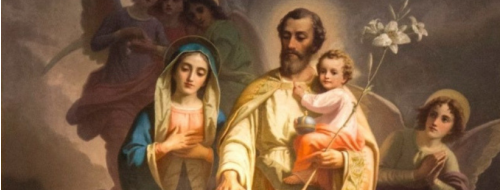 Family Matters
Family Matters
What place does God’s Word have in making happy homes?
What place does God’s Word have in making happy homes? Someone has observed that there is no place on earth so close to heaven as a happy home, and there is no place on earth so far from heaven as an unhappy one. If homes are transformed by God’s Word and harmonize with the principles of God’s Word, will they not be brought nearer to heaven itself?
Children who grow up in happy, godly homes do not realize the priceless heritage they enjoy. These children consider it normal to see role models who express Christian maturity in the crises of life, see differences resolved in a peaceful way, and know security and peace in everyday situations. This is a wonderful foundation for the challenges of adult life.
When children grow up in the homes of unbelievers and there is conflict, they may rightfully believe if God would have been present in their home, then they too could have had happiness and fulfillment at home.
It’s the children of families that confess conservative values and Scriptural goals but have stress and unending conflict that suffer the most. These little ones and teenagers have good reason to doubt the faith of their parents when they do not find harmony and peace at home.
What are couples involved in an unhappy marriage supposed to do? They didn’t get married expecting problems. Often the more they work at trying to get the other person to live up to their expectations, the more desperate the situation becomes.
The foundational belief is that in order to be happy, all homes need to be built on the foundation God has laid out in the Bible. Good homes need it, poor homes need it even more. God created the plan of marriage and chose the partners He wants to be together. God can give the “grace of life” to make it work when couples fit into His plan.
No home relationship is so wounded that it cannot find some healing when father or mother finds a walk with Christ the source of inspiration for life. How much better when each comes to trust in the Designer’s principles and apply them to their home. But if one must do it alone, when he knows he is following God’s will, his faith will sustain him even in the darkest hours.
God didn’t put any couple together in order to make them miserable. He holds the key for their happiness. When they cling steadfastly to Him, He will lead the way. His goal is for every Christian home to be a happy haven and testimony of His grace.
“Male and Female Created He Them”
In courtship it is fairly normal for couples to assume they are pretty much alike and will always be happy together. They assume if they should happen to differ, their love for each other will enable them to overlook differences, and they will easily have a happy marriage.
Most couples look back at the feelings they had in courtship with a sense of wistful nostalgia, wishing their life could return to the blissful romance they once enjoyed. After marriage, couples soon realize they are about as opposite as can be. For individuals with a passive personality or with strong training in self-denial the realization of difference may be minimized. But for others, the reality of living together may bring adjustment, even disillusionment or questions of whether or not they are in the Lord’s will to even be married.
Even before the Fall, and especially afterwards, married life brings tremendous adjustments. Man and woman are created for different responsibilities and with different gifts.
But it could be worse. Before the woman was created God said, “...Not good...” Then He created someone meet to be his help in every way and pronounced, “very good.” Adam was helped by Eve’s strengths, and he was helped by Eve’s weaknesses.
Every married person needs to come to that place in his life; the place where he realizes that God has created his spouse especially for him. This will give him the vision to fill his place in the marriage relationship.
In the first marriage, the Sacred record is careful to note, “And God blessed them...” There was a Divine Being who superintended Adam and Eve’s marriage. There is a Divine Being who superintends our marriages today too. We are not alone needing to grope for answers. We have a God who made us, led us together and blesses us for His glory even when we do not fully understand what we are going through.
God created mankind as male and female. From what we can tell, all celestial beings are asexual; they are neither male nor female. In the natural realm, every species of creation of higher animals on the sixth day was created male and female.
When God created Adam on Friday afternoon, after all the other animals were created, He paused. He brought Adam into full consciousness of who he was, then had him consider the entire family of animals. Today specialists inform us there are over 5,000 species of mammals alone. The total number of all animal species with backbones is close to 60,000.
We don’t know which of the animal kingdom Adam saw, but we do know that among the spectrum, there was none found suitable to be Adam’s soul mate or his physical companion.
And so we have the Biblical record of God creating woman. God pronounced that woman is a help that is suitable for man. After God created the pair, He told them to “be fruitful and multiply.” God who is the author of life, also intended that the human family grow through procreation.
The differences in gender are intentional and not to be compromised. God created man to take dominion over the animal world and to dress and keep the garden. He created woman to build the nest, or the home. He gave her the taste and sensitivities for the nurturing of little ones.
These created differences between man and woman set them very much apart from each other. When man and woman blend their gifts as a couple, they produce a strength that far surpasses what either of them would have had alone. Even if a man or woman could live twice as many years they could never do alone what the two can do in marriage.
When in a marriage man and woman turn on each other, demand that the other understand them, or try to remake each other, there will be great loss. A disagreeing couple has potential to destroy each other.
In the larger picture, we observe patterns emerge in declining civilizations. Womankind becomes discontented with the subordinate role of homemaking. Men rebel against the calling to wrest wealth from nature and seek soft and easy lifestyles. The role of genders is blurred. Homosexuality often becomes accepted. Romans 1 describes this spiral of degeneracy with the subsequent eternal judgment of God.
These changes are always contrary to the will of the Creator. Perhaps a youth will find he cannot entirely relate to the role of his gender, but he dare not in any way fantasize venturing into a homosexual role or relationship. This is just as wrong as for the unmarried to fantasize about fornication or for the married to idealize adultery.
God kept man in the dark while He created the one with whom He intended to bless his life. Adam could not take credit for Eve coming into his life. All he could do was acknowledge his need for a companion. There was nothing he could do except commit the entire matter into the hands of God and rest in peace that God would take care of the problem for him. When God gave him his wife, his duty was to appreciate the gift and dwell with her in humble gratitude.
This is a powerful example and pattern for mankind today. Each marriage needs to be put together by God. As a Christian youth develops into adulthood, there will be a gathering sense of incompleteness. The incompleteness develops into a desire for companionship. God does not reveal beforehand who He will join with whom.
When God does open the door for marriage, then Christians will recognize the leading for what it is; God is joining them together. Even as Adam had no other options, after marriage each Christian should soon consider that he too had no other options. His only option is to grow in his maturity and contribution to what God has created.
Even if a couple marries while in a state of rebellion against God, or if they had practices that were unclean in their courtship, they should accept their calling as being from God. If the marriage is lawful, it is God-joined.
The Fall brought character deficiencies that complicate man and woman living together in harmony. Even before God pronounced the curse, we witness changes in how Adam and Eve related to each other. Along with their sense of nakedness came a self awareness. They knew they were vulnerable. They went into patterns of hiding themselves and their character. Blaming each other also became a part of the pattern. When God asked Adam about what happened, he blamed Eve. Of course Eve blamed the serpent.
In the curse, even more fissures developed. The woman was burdened with increased fertility, and childbirth became more troublesome. Her craving to find completeness in her relationship with her husband became part of her package, along with the knowledge that he would rule over her. For Adam, he became much more preoccupied with his work; not only was it more difficult, his own life was more taken up with toil.
When a husband understands his wife’s inherent challenges, he can compensate to bring out her best contribution to their relationship and to their marriage. Even though a Christian husband will wonder at times why he finds it difficult to understand his wife, he has a basic understanding of their differences. He knows she was created for a different role than he: to be a nester. She will care about the house, the home and the family. He understands that she will be concerned with childbearing and the emotional development of the children. He knows she will have a passion to know his heart, his thoughts and why he feels the way he does.
Knowing these things gives him advantage. He realizes he will not meet her needs by scolding or mocking her for her quirks or worrisomeness but by tenderly drawing her out and speaking comforting words to her heart.
He knows that when he invests into the home, the family, the care of the children, he invests into her life and world. When he shows his wife that her instincts are important to him, then she knows she is important to him.
A man will never meet his wife’s needs by withdrawing from her or by becoming more aloof. That would only contribute to her emotional vulnerability. He will keep winning her heart by caring about her world.
When a Christian wife considers her husband’s inbuilt vulnerabilities and makes up for them, her strengths can be his crown and glory. A Christian wife on the other hand knows her husband wants to be a success. He wants to be able to provide for his family, to be able to conquer and subdue the obstacles that he faces in everyday life.
If she sees his efforts as pathetic, and becomes emotionally involved in his failures, she will signal that she despises him in thousands of little ways. When a man senses he is a failure in the eyes of his wife, he naturally endeavors to become a success somewhere. If others respect or even adore him, he becomes vulnerable to their attentions. When the Christian wife minimizes her husband’s weaknesses and communicates her genuine respect for him, she opens the door for an ever deepening relationship between them. When she pledges her allegiance to him, she gives him the greatest gift a wife can give her husband. A godly couple will realize there is no disagreement worth being divided over and bringing the end result of family ruin. Little things can pile up into deep divisions between husband and wife. Couples in the world may allow those things to go unresolved until the family fragments. Godly couples will understand there is no personal preference worth pursuing to bring the family circle to ultimate destruction.
In summary
The greatest satisfaction a created being can ever find is to worship his Creator and be in harmony with the purposes for which he was created. Since the Fall has complicated man’s emotions, we will never feel entirely fulfilled here in this life. But God has invested so much fulfillment in the marriage relationship, we should praise Him in humble gratitude for the gift He has given us in making us male and female.

Lamp and Light Commentary

"Thy word is a lamp to my feet, and a light to my paths." (Psalms 119:105)
The Book Of Exodus Chapter 1-4

THE NATION OF ISRAEL IS BORN
If Genesis is 'The Book of Beginnings,' we could entitle Exodus as 'The Birth of a Nation' -the nation of Israel. We saw the beginnings of this nation in Genesis. Now we see it as a full-fledged nation. In the first 15 chapters we read of their slavery in Egypt and their deliverance from Egypt. The rest of the book deals with the giving of the Law, a little bit of their time in the wilderness and the plan God gave for building His tabernacle.
Redemption from Egypt
In the first chapter, we read that Pharaoh was disturbed by the Israelites, even though they were slaves. They were becoming numerous and he was afraid that they would finally rebel against him and stop working for him. So he passed an order that all male children born to the Israelites must be killed immediately. Now that scheme originated from the devil. Satan has always been after the Jews to kill them -many times in human History. This was just the first of such occasions.
We saw in our last study how God not only protects us from Satan's plans, but does something even better: He turns the tables on Satan and uses Satan's work to fulfill God's purposes. That shows God's almighty power in a much greater way than if he merely destroyed Satan or merely stopped Satan from working. God shows us His power not only by protecting us from the devil, but by using the very thing that Satan does to destroy him. The greatest example of this is Calvary -where Satan got Jesus' enemies to crucify Him. But that cross became the very place where Satan himself was defeated!! Satan's plan backfired on him -as it always has.
God turned the tables on Satan for Jesus. He will do the same for us too, if we live with a clear conscience in humility before Him. Whatever the devil and his agents do to harm us will be turned back on them- and God's purposes for our lives will be fulfilled. This is one of the main messages of the Bible -and we see it happening again and again in the Scriptures.
We see here that it was because Pharaoh had passed an order that all male babies should be killed, that Moses' mother put Moses into a little basket and floated it down the river with a prayer to God. If it were not for that evil edict, she would never have done such a thing. But because she did that, Moses was picked up by Pharaoh's daughter, and grew up in Pharaoh's palace -the place where God wanted him to be trained for the first 40 years of his life. That could never have happened if Pharaoh had not passed that evil law, for then Moses would have grown up to be just another slave. Do you see how God's purposes are fulfilled through what Satan does?
There is a great lesson here for all of us -that we see in Church history too. Whenever God wants to do something for His people, He always begins with a man. He had to find a suitable man before He could deliver the Israelites. The training of that man took 80 years -and it wasn't academic training alone. Moses was trained in the best academies of Egypt, but that did not qualify him for God's work. In Acts 7, Stephen says that Moses was mighty in both word and deed. He was a strong man, and an eloquent speaker at the age of 40. He was a great military leader, a very rich person, and had been educated with the best education that the most advanced country in the world could give -for Egypt was the world's only superpower in those days. At the end of it all, he was unfit to serve God. Stephen says that Moses thought that the Israelites would recognize that God had raised him up to deliver them. But they did not recognize him as their leader. All his earthly fame and abilities could not prepare him for the task God had prepared for him.
Today many Christians imagine that they can serve God just because they have Bible-knowledge, musical ability and plenty of money. But they're mistaken. They need to learn a lesson from Moses' life: 40 years of the best that this world could give him could not prepare him for God's service.
God had to take him through another 40 years in the wilderness, in a totally different environment from the palace, in order to equip him. He had to be broken of his human strength. And God accomplished this by making him look after sheep and by allowing him to live with his father-in-law and work for him -for 40 long years. Living with one's father-in-law for even one year can be quite humiliating for a man! I know that many married women in many countries live with their fathers-in-law all their lives. But it's different when a man has to live with his wife's father and work for him as well. That can be quite a humbling experience for a man. But that's how God broke Moses. You remember that that was how God broke Jacob too. He too had to live with his father-in-law for 20 years. God uses fathers-in-law and mothers-in-law to break His children.
What all the universities in Egypt could not teach Moses, he learned in the wi1derness, looking after sheep and working for his father-in-law. At the end of those 40 years, Moses is so broken that he who was once so eloquent and who thought he could deliver Israel, now says, "Lord, I am unfit. I cannot speak properly. Please send somebody else to lead your people." It was then that God said, "At last you are ready. I will send you to Pharaoh now" (4:10-17).
What is the lesson we learn from Jacob and Moses? Just this: When you think you are ready, you are not. When you think you are capable, that you are strong, that you have knowledge, that you can speak and sing and play musical instruments, and do wonderful things for God, God says, "You are unfit. I have to wait until you are broken." With Jacob that process took 20 years, with Moses it took 40 years, with Peter it took 3 years, and with Paul at least 3 years. How long will it take with us? That depends on how quickly we learn to submit under God's mighty hand.
How long does it take to go through school from First grade to Twelfth grade? 12 years -if you pass each year. But there have been children who took 16 years to complete 12 years of school. Some medical students take 10 years to complete a 5-year medical course! How long anyone takes to finish school depends on how quickly he learns his lessons. It is the same in the Christian life too.
It says in 12:40, "And the abode of the children of Israel that they made in Egypt, was four hundred and thirty years." However when God spoke to Abraham, He had told him that his descendants would be in another land for just 400 years (Genesis 15:13). But here we read that they were actually there for 430 years. Did God make a mistake? No. God is very exact in his timetable. God doesn't make any mistakes. When God spoke to Abraham, His perfect will for the Israelites was that they should be in Egypt for 400 years. Why then did they stay an extra 30 years?
To find the answer to that, let us consider another example. When God brought the Israelites out of Egypt His plan for them was that they would be only 2 years in the wilderness. But how many years did they really spend in the wilderness? 40 years. (See Deuteronomy 2:14).
God may plan to break you in 2 years. But it may actually take 40 years. God may want to begin to use you 2 years after you are converted. But He may not be able to use you for 40 years. It all depends on how quickly you are broken. So also, God's plan for Israel was that they should stay 40 years in Egypt. But they had to stay for 430 years.
I believe the reason was that their leader Moses was not yet ready. I believe that when Moses left Egypt at the age of 40, God had wanted to break him through a 10-year course with his father-in-law in the wilderness, so that he could be ready at the age of 50 to be Israe1's leader. But Moses did not learn his lesson in 10 years. His father-in-law had to humble him some more, before Moses was broken enough. It took Moses 40 years to complete that 10-year course! Therefore the Israelites had to wait 30 more years. God is dependent on broken men for His work on earth.
This has a message and a warning for us. God may have a plan for your life. But it will never be fulfilled till you are broken. What He has planned to do in you in 10 years may take 40 years. So, it is good to be quick to humble ourselves always under God's mighty hand -which refers to the circumstances He sends across our path.
Lamentations 3:27 says, "It is good for a man, when he hath borne the yoke (humble himself and be broken) from his youth." Allow God to break you when you are young. Don't fight against the circumstances God permits in your life, for that will only delay God's plan. All your Bible knowledge, musical abilities and money cannot equip you for God's service. Brokenness is essential. Jacob could become an Israel only when he was broken. Moses could become a leader and a prophet only when he was broken.
Chapter 2:
Here we read of the time when Moses goes out to deliver the Israelites from the Egyptians. He sees an Egyptian beating a Hebrew (2:11) and he beats the Egyptian to death. Can you imagine how strong Moses was to kill a man just with his bare hands? If he had continued killing the Egyptians at this rate -one by one -how many years do you think it would have taken to kill all the millions of Egyptians? Moses would have died before all the Egyptians were killed. But when God had broken him by the age of 80, all Moses had to do was to lift up his rod over the Red Sea, and in a moment the entire Egyptian army was buried under the Red Sea. That's the difference between what a man can accomplish in his own strength and what a broken man with God's power can accomplish.
The message in the Scriptures right from the beginning is this: If you want to build Jerusalem, If you want to build the true Church, the Catholic Church you have to be broken. You have to be humbled by God through circumstances and through people. If you don't rebel in those circumstances, God can do a quick work in you. I have seen a lot of zealous young people who know the Bible in their heads and who think they can go out and serve God. And they go out and serve God in their strength. Twenty or thirty years later they are frustrated, discouraged, critical, and blame this person and that person for their failures. They have accomplished nothing and wasted their lives. Why? Just one reason -they never allowed God to break them. The more we are broken, the more God can use us to be a blessing to others.
We read in Chapter 17 that it was only when the rock was smitten that the waters begin to flow. If the rock is not smitten, the waters will not flow. When the woman who brought perfume in an alabaster vial broke it at Jesus' feet, only then did the sweet odour fill the house. No one could smell that until the vial was broken. When Jesus took the bread and blessed it, nothing happened. But when He broke it, five thousand were fed. What is the message in all these examples? Brokenness is the way of blessing. When the atom is split what power is released! It can give electricity to a whole city! Imagine the power that is released when a small atom -so small that you can't even see it under a microscope -is broken. The message in nature as well as in the Bible is just this: God's power is released through brokenness. May that message grip your life. I want to encourage you to learn that lesson when you are still young.
God made a promise here through Moses to the people. He told all those elders and leaders of Israel (3:17), "And I have said the word to bring you out of the affliction of Egypt into the land of the Canaanites...." There were two promises there among others:
"I will bring you out of Egypt."
"I will bring you into Canaan."
Only the first was fulfilled. The second was not fulfilled for those elders who heard it. Out of all those elders who heard the promise of God, -”I will bring you out of Egypt, I will bring you into Canaan," none entered Canaan. Only half of God's promise was fulfilled because those elders did not respond in faith when the time came to enter Canaan (Numbers 13). God's promises are not fulfilled, until we respond in faith. It's like an electric switch. At a switch, two wires are connected next to each other, but not touching each other. The moment you put the switch on, those wires touch and the lights come on. God's promise and our faith are the two wires. They may be very close to each other. But if they don't touch, nothing happens. The moment they touch, power is released. You can hear about God's promise and you can understand it, but it is only when your faith reaches out and says, "Yes, I believe that will be fulfilled in my life," that it is fulfilled. Out there at the borders of Canaan, only Joshua and Caleb believed God's promise, and so only Joshua and Caleb experienced it.
Chapter 4:
We read here about God calling Moses. In order to encourage Moses and to teach him some lessons, God gave him three signs. When Moses told the Lord, "They will not believe what I tell them," the Lord asked him, "What is in your hand?" Note that! The Lord always begins with what is already in our hands. We don't have to go looking for something that we don't have. Elisha asked the widow, "What do you have in your house?" She replied "Only ajar of oil". Elisha said, "That's enough. With that pot of oil all your problems can be solved." (2 Kings 4:2, 3). Moses had only his shepherd's staff in his hand. That was enough. When God is with you, miracles can happen with even a shepherd's staff.
For the first sign, God told Moses to throw the staff down. It became a serpent and Moses fled from it (verse 3). The Lord said, "Don't be scared. Stretch out your hand and take it by the tail." He caught it and it became a staff in his hand again. What was the message there?
First of all, that Satan is far closer to us than we think -as close as that staff was to Moses. Do you think Satan is far away from us? No. He is always nearby to cause misunderstandings between husband and wife, and between co-workers, etc. But we can overcome Satan! We are not to be afraid of him, for he is a defeated foe. One of the first lessons we need to learn when we serve the Lord is not to be afraid of Satan. Satan has got his citadels and his forts, but we don't run away from him. We are to run away from temptation (2 Timothy 2:22), but Satan has to run away from us (James 4:7). In Jesus' mighty Name the very thing that Satan uses to try and frighten us, will become a rod of authority in our hand -to split the seas and to lead God's people forward.
As God's servants we need His authority - not Bible-knowledge first, but Divine authority. I would rather have spiritual authority than Bible knowledge any day. The first thing Moses needed was authority over the enemy. It was Satan who was enslaving the Israelites through his servant Pharaoh. And Moses needed to pick him up by the tail, without any fear. Satan should never be able to make us afraid of him.


Books to feed your faith!

The Three Days of Darkness
$5.95
Day of wrath and doom impending. David's word with Sibyl's blending, Heaven and earth in ashes ending. We open with the Dies Irae, because it applies to the Three Days of Darkness. Pope Saint Gregory the Great says in his Regula Pastoralis: “Let them be told how the Prophet Sophonias holds out over them the stroke of divine reproof, when he says: 'Behold, the day of the Lord is coming, great and horrible . . . . That day is a day of wrath, a day of darkness and obscurity, a day of clouds and whirlwinds, a day of the trumpet and alarm against all the fenced cities and against all the high corners.'” 1 Note this verse inspired the Dies Irae. The purpose of this book is to provide all of the prophecies that relate to the Three Days of Darkness. These are placed in a chronological order similar to that employed by Father Culleton is his two books, Antichrist and The Prophets and Our Times. They are provided without comment so that you can study the prophecies themselves. Some of the prophecies may appear out of place, but they will make sense as you move forward. It is strongly recommended that you make notes as you proceed forward with this book. In this way you can sort things out for yourself. Padre Pio predicted the Three Days of Darkness. So does Sacred Scripture, which calls it the Day of the Lord. Even Jesus Himself referred to the Three Days of Darkness in the Gospels. This book considers the many Catholic prophecies on the Three Days of Darkness.
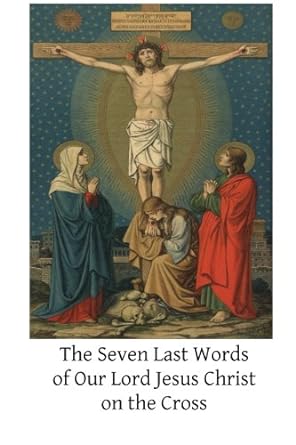
The Seven Last Words of Our Lord Jesus Christ on the Cross
$4.00
The original of this little work was written by Cardinal Bellarmine towards the close of his life, when he had retired to the House of his Order at San Andrea. It was intended primarily for religious, but the thoughts it embodies should help many to follow the author in his faithful imitation of Christ Crucified. In the attempt to give the gist of St. Robert's work in a few pages, much condensation and much omission was necessary. This will account, in some measure, for the abrupt transition of thought noticeable in a few places.
We present this small treatise to pious persons, entreating them to peruse it. Long ago the Holy Ghost said: “It is a holy and wholesome thing to pray for the dead, that they may be loosed from their sins.” (II Macabees 12:46) Our Lord shed tears in seeing the tomb of Lazarus, and the Church, well acquainted with the feelings of her Divine Founder, is incessently recommending charity for the Souls suffering in Purgatory. One of her eminent doctors, St. Thomas of Aquinas, has said that: “Of all prayers, the most meritorious, the most acceptable to God are prayers for the dead, because they imply all the works of charity, both corporal and spiritual.” But there are many people unconscious of the fact that charity for the “Poor Souls” is profitable to the living as well as to the dead. It is the teaching of the most learned theologians, viz: St. Alphonsus Ligori, Sylvius, Robert Bellarmine, Bonacina, and Suarez. “It is true,” says St. Alphonsus, “they are unable to pray or merit anything for themselves, yet, when they pray for others, they are heard by God.” Let us refer to Bellarmine: “The Souls in Purgatory,” says he, “can pray for those, who address to them their petitions, and obtain from God help, forgiveness, assistance against temptations, and, all favors, both temporal and spiritual, which they may need.” Many Saints have experienced this wonderful assistance. St. Catherine of Bologna assured her Sisters that: “She obtained many favors by the prayers of the holy Souls in Purgatory, which she had asked in vain, through the intercession of the Saints.” St. Theresa affirms that: “She always obtained the favors which she asked from God, through the intercession of the Poor Souls.” We read also in the book of St. Bridget's Revelations that: “Being one day conducted by an Angel into Purgatory, she heard a soul say: “Oh Lord, vouchsafe to reward those who assist us! Return hundredfold blessings to those who help us and introduce us into the light of Heaven.” St. Leonard of Port Maurice emphatically affirms that: “The blessed Souls, delivered by our prayers, will come down from Heaven to assist us in our temporal and spiritual affairs.” The Venerable Cure d' Ars, replying to a priest said: “If one knew what we may obtain from God by the intercession of the Poor Souls, they would not be so much abandoned. Let us pray a great deal for them, they will pray for us.” Blessed Margaret Mary Alacoque had a special devotion for the Souls in Purgatory and has often accepted the charge of suffering for them. “Would that you knew,” she said, “how my soul was replenished with joy, when speaking to those Souls, and seeing them immersed in glory as in a deep ocean. As I requested them to pray for you, they replied: “An ungrateful soul is not to be found in Heaven!” No, we cannot be deceived! If we have an ardent charity, a sincere piety, a true devotedness for the Poor Souls, we will be favored with their protection. Let us try it! When we are in trouble, when we long for a favor, let us perform some pious or charitable work for the relief of the “Poor Souls.” They will be grateful, they will plead for us, and present our requests to the Eternal Father, Who loves them. May God bless this humble work! May He deign to enkindle generous hearts with zeal for the “Poor Souls.” "Blessed are the merciful: for they shall obtain mercy.” (Matt., V., 7.)
In the writings of St. Margaret Mary we find the following exhortation: “In union with the divine Heart of Jesus make a short pilgrimage to Purgatory at night. Offer Him all your activities of the day and ask Him to apply His merits to the suffering souls. At the same time implore them to obtain for you the grace to live and die in the love and friendship of this divine Heart. May He never find in you any resistance to His holy will, nor any wish to thwart His designs in your regard. Fortunate will you be, if you succeed in obtaining deliverance for some of these imprisoned souls, for you will gain as many friends in heaven.” This pious practice which St. Margaret Mary recommended to her novices for the octave of All Souls, was introduced to the members of the Arch-confraternity of Our Lady of the Sacred Heart in the year 1885. Since then many of the faithful have made this pilgrimage daily. Our world-wide Arch-confraternity, therefore, would seem to have been chosen by divine Providence to obtain comfort and deliverance for many souls in Purgatory. In a letter of recommendation, given on January 5, 1884, his Eminence, Cardinal Monaco la Valette, Vicar General of His Holiness, sanctioned the propagation of the “Daily Pilgrimage to Purgatory”. On October 8 of the following year, his successor, Cardinal Parochi deigned not only to honour us with a letter of approbation, but also delivered a splendid sermon on this practice in the church of Our Lady of the Sacred Heart in Rome, in which it had been introduced. May it please the divine Heart of Jesus to use this booklet as a means of spreading this work of sympathetic love for the Poor Souls everywhere. May this most benevolent of hearts extend to all who in any way assist in its circulation, the fullness of His graces and blessings. It is short ..…. A “Daily Pilgrimage” …… It is requires little more of your time than an ordinary prayer, a religious thought, or a devout ejaculation. It is easy ..…. It can be practised by any one without effort, regardless of age or state of life, at any time, and in any place. It is comforting .….. No more is required than to descend in spirit for a few moments into Purgatory; to petition God to send light, relief and peace to the holy souls: to relieve them of their sufferings, and to hasten the hour of their deliverance. It is holy …... It is in accordance with the wishes of the Sacred Heart; it increases His honour. He is our companion on this pilgrimage. We share in his love, and receive from Him light, relief and peace for the suffering souls. It is generous ……. It offers to the Sacred Heart every meritorious deed performed in the course of a day; prayers, mortifications, good works, alms, suffrages of every kind, and places them at His disposal on behalf of the Poor Souls. It is inexhaustible .….. It implores Our Lord and Saviour to apply to them the infinite merits of His Life. His Passion and Death, and also those of the Blessed Virgin Mary, St. Joseph and all The Saints. It is efficacious.…. If only you knew with what ardent desire these holy souls long for this new “remedy” which has such efficacy to relieve their sufferings. For this is what St Margaret Mary calls the devotion to the Sacred Heart.

The Funny Pharmacy
A joyful mind maketh age flourishing: a sorrowful spirit drieth up the bones. - Proverbs 17:22
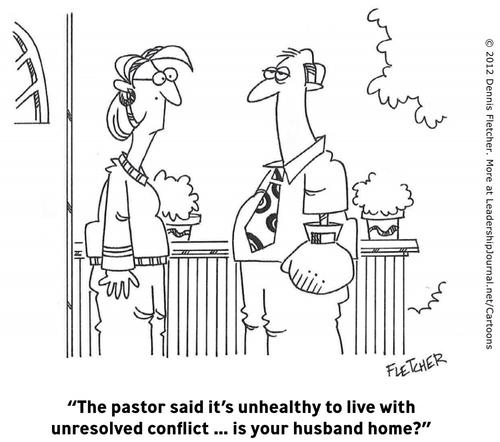
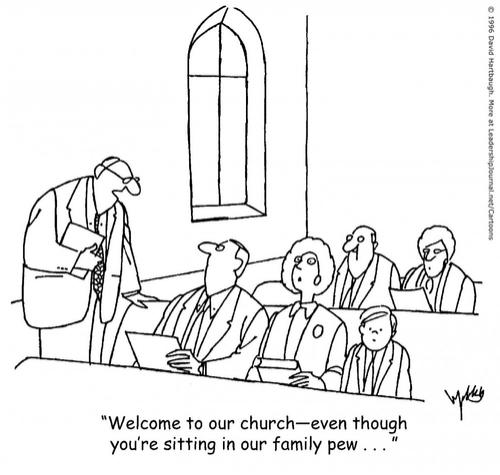

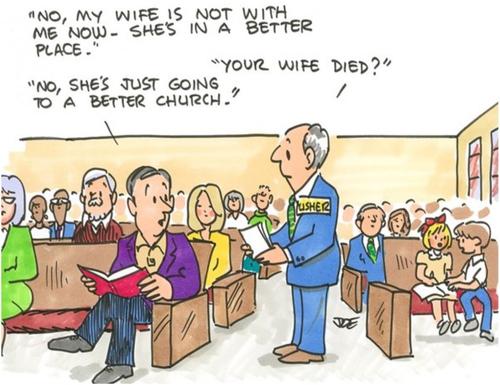



Easter Meat Pie

Prep: 45 minutes
Cook: 1 hour
Ready In: 1 hour 45 minues
Ingredients
4 (9 inch) unbaked pie crusts
2 pounds ricotta cheese
6 eggs
8 ounces mozzarella cheese, grated
1 pound cooked ham, chopped
1/2 pound Genoa salami, chopped
1/4 pound prosciutto, chopped
1/4 cup grated Parmesan cheese
Directions
Preheat oven to 325 degrees F (165 degrees C).
Place ricotta in a large mixing bowl and add eggs one at a time while mixing on low speed. Stir in mozzarella, ham, salami, and prosciutto until all ingredients are well combined. Line two 9 inch pans with pastry. Spoon half of mixture into each pan. Sprinkle half of the Parmesan cheese over each pie, then cover with top pastry. Crimp edges and cut steam vents in tops.
Bake in preheated oven for 1 hour, until crust is golden brown. Cool on racks.
Paska Bread

Prep: 30 minutes
Cook: 50 minutes
Ready In: 6 hours 40 minutes
Ingredients
For the Sponge:
2 (.25 ounce) packages active dry yeast
1/2 cup warm water (110 degrees F/45 degrees C)
1/2 cup white sugar
3 cups warm milk
4 cups all-purpose flour
For the Dough:
6 eggs, beaten
1/2 cup white sugar
1 cup butter, softened
1/4 teaspoon salt
1/4 teaspoon lemon zest
12 cups all-purpose flour
1 egg
1 tablespoon water
2 tablespoons butter, melted
Directions
Proof the yeast in 1/2 cup warm water in a large bowl until slightly frothy.
In the meantime, dissolve 1/2 cup sugar in the warm milk; allow to cool to lukewarm. Once cooled, add the milk mixture to the yeast mixture along with 4 cups of flour. Mix well with a wooden spoon. Cover and put in a dark, warm place until the mixture is bubbly and doubled in size, about 2 hours.
Stir in the beaten eggs, 1/2 cup sugar, 1 cup butter, salt, and lemon peel. Stir well to blend. Begin adding the remaining flour a cup at a time to form a very soft dough.
Knead the dough on a floured board until soft and elastic, about 10 minutes. Place the dough in a greased bowl, turning to coat all sides. Cover bowl with plastic wrap and allow to rise in a warm place until doubled, about 2 hours. Punch dough down, and allow to rise again for 30 minutes.
Divide dough into three parts (see Cook's Note). Shape into slightly rounded loaves, and place on greased baking sheets. Let rise until doubled, about 45 minutes to 1 hour. Beat 1 egg with 1 tablespoon water; brush onto loaves.
Preheat oven to 350 degrees F (175 degrees C).
Bake in preheated oven until loaves are deep brown, 45 to 50 minutes. Once they are done, brush the tops with melted butter for a soft crust.

Video sermons and instructions: Timeless timely truths for living the Faith
Low Sunday (2011)
One Flock (2013)
Go and Sin No Less
A Catechism story: St. Cecilia
Vatican In Exile Podcasts
Family Theater
Family Theater was a program created to promote family unity and each week saw a drama illustrating the importance of family life and prayer. The main reason for the success of this series was undoubtedly due to the numerous Hollywood stars that participated.
Cast: Bing Crosby, Gary Cooper, James Stewart, Gregory Peck, Shirley Temple Director: Fred MacKaye, Dave Young, Joseph Mansfield, Richard Sanville, Jaime del Valle, Mel Williamson, Robert O’Sullivan, John Kelley Producer: Father Patrick Peyton, Bob Longenecker Host: Father Patrick Peyton Writer: True Boardman , Father Patrick Peyton Announcer:Tony LaFrano
Ranger Bill
Ranger Bill was a Christian radio adventure serial, and aimed at the younger generation. This turned out to be one of the most successful radio broadcasts, and with an amazing longevity of over twelve years. The very first fifteen minute episode was aired on October 2, 1950, but this later changed to a half hour episode, beginning May 14, 1954 and running right through until 1962.
Catechism Corner
Catechizing with a fresh perspective. Using the Holy Scriptures and the Catechism of the Council of Trent as foundational bases.
Lamp and Light Bible Study
Lamp and Light Bible Study is not a ‘theological’ study but a ‘life application’ study.
Our in house Priest will show that every single book of the Bible is interesting and has a message for us today. It deals with key aspects of the Christian life and speaks more to the heart than to the head.
Sunday Sermon
The Ave Maria Hour
The Ave Maria Hour first aired on April 26, 1935, on radio station WOR. It was presented by the Franciscan Friars of the Atonement to help the humanitarian work of St. Christopher’s Inn, and during that first show, Servant of God Father Paul of Graymoor talked about the charity involved in caring for the men of the Inn. In 1937, it was estimated that nearly 1 million listeners were tuning in each week, which resulted in large pilgrimages coming to Graymoor.
The popular Ave Maria Hour continued until 1969, encouraging and entertaining listeners. It was heard on more than 350 stations as well as on the Armed Forces Radio Service. Recorded in a studio in New York City and on the grounds of Graymoor, these dramatizations of the lives of the saints, stories from the Gospel, and inspiring accounts of faith received many awards for religious radio programs sponsored by the American Exhibition of Educational Radio and Television programs of Ohio State University. It received the Golden Bell Award in 1959, presented by Ed Sullivan on live television.
The Bible In Living Sound
THE BIBLE IN LIVING SOUND, the original dramatized audio Bible stories . . . really gets kids excited about the Bible! These 450 spiritually enthralling stories, re-enacted with music and lively sound effects, leave impressions of lasting beauty and wonder, putting the listener in the Red Sea at the crossing, beside David as he confronts Goliath, with Mary and Joseph in the stable, and there at the foot of the Cross. These stunning dramatizations captivate listeners of all ages as they are enriched by visualizing the values taught in God's Word. Listeners want to hear these audio Bible stories again and again.

Day Three
Genesis 1:9-13
9 God also said: Let the waters that are under the heaven, be gathered together into one place: and let the dry land appear. And it was so done.
10 And God called the dry land, Earth; and the gathering together of the waters, he called Seas. And God saw that it was good.
11 And he said: Let the earth bring forth the green herb, and such as may seed, and the fruit tree yielding fruit after its kind, which may have seed in itself upon the earth. And it was so done.
12 And the earth brought forth the green herb, and such as yieldeth seed according to its kind, and the tree that beareth fruit, having seed each one according to its kind. And God saw that it was good.
13 And the evening and the morning were the third day
On day three, God was making the earth take on definite shape as He commanded the land to rise up out of the water. Later, on this same day, He commanded the plants to be brought forth. As theses plants would be growing on this land surface, God must have made this dry would be growing on this land surface, God must have made this dry land with beautiful, nutritious soil to provide what the plants needed.
One Continent?
Because God said that he gathered the waters “together unto one place.” Creation scientists believe that the land would also have been in one place. What I mean by this is the possibility that there was actually only one continent originally-one major land mass on the earth when it was first made. This continent may havehad a variety of shapes around its coast, with long narrow areas jutting out, and so on.
The shape of the land may have divided up the water around the glove so that the areas of water could be called “seas”-which means there was more than one sea. Think about the continent of Australia today. On the east side we have what is called “Pacific Ocean,” On the west side the “Indian Ocean, and in the south the “Great Southern Ocean.” So, we have a number of different oceans, but it is one body of water. Thus even if the original earth only had one continent, there could still be a number of “seas.”
If there was only one continent originally then something has obviously happened to break up this one land mass to form all of the various continents that exist today. This likely happened during the catastrophic events of Noah’s Flood (this will be discussed when we get to chapters 6 through 9).
High Mountains?
What was the land surface like when it was first made? For instance, would there have been high mountains like we have today? I doubt there were really high mountains, because we are told later on that the waters from the great flood covered “all the high mountains under the whole heaven.” (Genesis 7:19). Now there’s not enough water in the oceans to cover all the mountains that exist today. But scientist have calculated that if all of the land surface and the ocean basins that exist today were leveled out so that there were no hills, valleys, deep oceans trenches, etc. the waters in the oceans would over the entire earth to a depth of almost two miles. So, if the oceans were not as deep as they are now, and the mountains not as high, there would have been enough water to cover the entire earth just as it says in Genesis chapter 7. This would mean the high mountains and the deep oceans were formed toward the end of the Flood and even after the Flood.
Now Psalms 104 is a psalm that David wrote that tells us a lot about creation. In fact, Davis puts a lot of the information about creation in the psalm in the same order as the days of creation in Genesis chapter 1. He also adds in lots of other information for us as well. For instance, in verses 6-9, some scholars believe David might be referring to what happened at the end of Noah’s Flood.
5 Who laid the foundations of the earth, that it should not be removed for ever.
6 Thou coveredst it with the deep as with a garment: the waters stood above the mountains.
7 At thy rebuke they fled; at the voice of thy thunder they hasted away.
8 They go up by the mountains; they go down by the valleys unto the place which thou hast founded for them.
9 Thou hast set a bound that they may not pass over; that they turn not again to cover the earth.
In these verses, David seems to be saying that after the water covered the entire earth, God raised up the mountains and then sunk the ocean floor so that the water could run off the earth. God raised up the mountains and then sunk the ocean floor so that the water could run off the earth. This would also explain why there are marine fossils on the tops of mountains like the Himalayas. The creatures were buried during the Flood and then sediments were raised up as mountains formed at the end of the Flood. He then tells us that God set a boundary so the water would never again cover the earth. This fits with the end of the flood described in Genesis 9:11: I will establish my covenant with you, and all flesh shall be no more destroyed with the waters of a flood, neither shall there be from henceforth a flood to waste the earth.
God promises He will never again judge the earth with such a global flood. Now we have seen many local floods since this time, so this verse is obviously referring to God never judging again with a global flood. We know though that the earth is going to be judged again, but with fire next time (2 Peter 3:10).
So it seems that at the end of Noah’s Flood, God raised up the mountains and made the deep oceans. This means the water from Noah’s Flood is in today’s oceans. Remember that the next time you are looking at the ocean! You are looking at the water that once destrouyed the entire earth-the water that God used to judge this earth because of wickedness. We could even use the ocean as a topic to witness to people, sharing how God judges wickedness as a righteous judge, but provides a way of salvation for those who obey His Word.
What did this original land surface look like then? Well, we know there were hills, because Genesis 7:19 say that the “high mountains” were covered with water during the Flood. The mountains though (some translations say “hill,” which is a better word) were nowhere near as high as the mountains we have today, as I have explained. So there were probably hills, valleys, flat areas, lakes, and rivers. In Genesis 2:10 we are told about a river in the Garden of Eden. There must have been plenty of places like rivers and lakes with lots of fresh, clean water, because God made many kinds of land animals to live on the earth on day six.

Catechism Catch-Up
The Sacrament of Holy Orders (Priesthood)

"Having therefore a great high priest that hath passed into the heavens, Jesus the Son of God: let us hold fast our confession. For we have not a high priest, who can not have compassion on our infirmities: but one tempted in all things like as we are, without sin. Let us go therefore with confidence to the throne of grace: that we may obtain mercy, and find grace in seasonable aid....For every high priest taken from among men, is ordained for men in the things that appertain to God, that he may offer up gifts and sacrifices for sins: Who can have compassion on them that are ignorant and that err: because he himself also is compassed with infirmity. And therefore he ought, as for the people, so also for himself, to offer for sins. Neither doth any man take the honour to himself, but he that is called by God, as Aaron was.” (Hebrews 4:14-16, 5:1-4)
JESUS COMMISSIONS HIS FIRST PRIESTS
- "And Jesus coming, spoke to them, saying: All power is given to me in heaven and in earth. Going therefore, teach ye all nations; baptizing them in the name of the Father, and of the Son, and of the Holy Ghost. Teaching them to observe all things whatsoever I have commanded you: and behold I am with you all days, even to the consummation of the world." (Matthew 28:18-20)
-
What did Jesus do to continue His work on earth?
To make sure that His work be continued, Jesus established the Catholic Priesthood, through the Sacrament of Holy Orders. -
What is the Sacrament of Holy Orders?
Holy Orders is the Sacrament which gives a man the powers of the Catholic Priesthood. -
In general, what is a priest?
"For every high priest taken from among men, is ordained for men in the things that appertain to God, that he may offer up gifts and sacrifices for sins:" (Hebrews 5:1)
A man who offers sacrifices to God for the sins of the people. -
Was Jesus a priest?
"Wherefore it behoved him in all things to be made like unto his brethren, that he might become a merciful and faithful priest before God, that he might be a propitiation for the sins of the people.” (Hebrews 2:17)
Yes, Jesus was and is, the Great High Priest. -
Who were the first Catholic priests?
The twelve Apostles, who were ordained to the priesthood by Jesus Christ Himself. -
When did Jesus make the twelve Apostles priests?
"Do this for a commemoration of me." (Luke 22:19)
At the Last Supper, on the night before He died, when He gave them the power to change bread and wine into His Body and Blood. -
Did the Apostles make other men priests?
Yes, for example, Paul, Barnabas, Timothy, Titus, and Matthias. See Acts 13:3, 14:22, 1:24-26, and Titus 1:5. -
How did the Apostles ordain other men priests?
"Then they, fasting and praying, and imposing their hands upon them, sent them away. " (Acts 13:3)
By praying for them and imposing hands on them. -
After the Apostles died, how were the powers of the priesthood handed down?
Before they died, the Apostles made other men bishops, who in turn made other men bishops, and in this way the powers of the priesthood have been handed down during the past 2000 years. -
How are the powers of the priesthood handed down today?
Today the bishops hand down the powers of the priesthood just as the Apostles did - by praying over and imposing hands on the candidates for priesthood. -
What are the chief powers of the priesthood?
They are --
To offer the Holy Sacrifice of the Mass, which includes the power to change bread and wine into the Body and Blood of Jesus Christ and...
- To forgive sins.
- To preach with authority.
- To administer other Sacraments
- To bless people and objects.
12. Where does the authority of the priesthood come from?
From Jesus Christ, the Second Person of the Holy Trinity.
- "He that heareth you, heareth me; and he that despiseth you, despiseth me; and he that despiseth me, despiseth him that sent me." (Luke 10:16)
-
Who can give the Sacrament of Holy Orders?
"For this cause I left thee in Crete, that thou shouldest set in order the things that are wanting, and shouldest ordain priests in every city, as I also appointed thee:" (Titus 1:5)
Only a bishop.

Living Catholic:
The Glory of the Lord
Psalm 138:5 proclaims that “great is the glory of the LORD.” The Hebrew word for “glory” is kavod. A fascinating term, it is used to describe this important attribute of God. The root meaning of the word is “weighty,” indicating that Jehovah has inherent value and worthiness. When God speaks, He speaks with authority. When He acts, He acts with dignity. When He is worshipped, He is to be given “the glory due unto his name” (Psalm 29:2).
When we say that God is glorious, we tend to think of that attribute in relation to man or to Creation. We are, of course, to “give glory” to the Lord, to “glorify” His name, and to reflect His glory in our own lives. But the glory of God existed even before man was created. God’s glory is independent of His creation. Although God made many wondrous things that reflect His glory, and certainly the “heavens declare the glory of God” (Psalm 19:1), He would be glorious even if none of these marvels—such as the sun, moon, stars, rainbows, or mountains—ever existed!
In His High Priestly prayer in John Chapter 17, Jesus gives us a glimpse of the eternal glory of the Godhead: “And now glorify thou me, O Father, with thyself, with the glory which I had, before the world was, with thee.” (verse 5). Before the dawn of time and before the creation of the universe, Jesus shared the eternal glory of His Father.
With the creation of man, the glory of the Lord was revealed and manifested so that we might partake of that marvelous glory. Before Jesus finished that prayer, He asked His Father, “Father, I will that where I am, they also whom thou hast given me may be with me; that they may see my glory which thou hast given me, because thou hast loved me before the creation of the world.” (John 17:24).
It is interesting that the word glory is not used in the opening chapters of the Book of Genesis. God saw His Creation and called it “very good.” But Creation is not described as “glorious.” We must be careful when we describe the sky as a “glorious sunset” or express how a musical production had an orchestra that was “glorious.” Creation “declares” God’s glory. Music can “glorify” the Lord. But Creation itself is not glorious, nor is music. Only God and God alone is glorious. He says, “I the Lord, this is my name: I will not give my glory to another, nor my praise to graven things.” (Isaiah 42:8).
Let’s consider the first dramatic use of the term glory as applied to God. That first presentation of God’s glory took place during the stirring events that surrounded the exodus from Egypt. God showed His people how He was able to strike down each one of the Egyptian deities through the ten plagues brought upon Egypt. The glory of God was demonstrably greater than all the glories of Egypt.
After the armies of Pharaoh were destroyed in the Red Sea, the song of Miriam exults in the glory of the Lord: “Your right hand, O Lord, glorious in power—
your right hand, O Lord, shattered the enemy.” (Exodus 15:6). This is the first use of glory or glorious in Scripture applied to the Lord. God is glorified when His people learn to depend upon Him as their defense rather than trusting trained fighting men or the power of chariots.
According to Exodus 16:7, the Lord displayed His glory in the provision of manna for the children of Israel in the wilderness. “And in the morning you shall see the glory of the Lord: for he hath heard your murmuring against the Lord: but as for us, what are we, that you mutter against us?” God continues to be glorified today when we give Him thanks for supplying our basic needs.
A few verses later, the glory of the Lord visibly appeared in the cloud of His presence. “And when Aaron spoke to all the assembly of the children of Israel, they looked towards the wilderness: and behold the glory of the Lord appeared in a cloud.” (Exodus 16:10). One of the best ways that we can glorify God is to thank Him for His daily abiding presence.
The glory of the Lord was manifested in the giving of the Law on Mount Sinai. “And the glory of the Lord dwelt upon Sinai, covering it with a cloud six days: and the seventh day he called him out of the midst of the cloud. And the sight of the glory of the Lord was like a burning fire upon the top of the mount, in the eyes of the children of Israel.” (Exodus 24:16–17). God’s glory is revealed in the Word of God, and when we look into the Bible, we see His glory manifested.
According to Exodus 33:18, Moses asked the Lord for the privilege of beholding His glory in a personal encounter. “I beseech thee, shew me thy glory.” God’s answer teaches us something about the nature of His glory. “And he said, Thou canst not see my face: for there shall no man see me, and live” (verse 20).
But God did provide an opportunity for Moses to behold His glory in a partial, imperfect way. “And the LORD said, Behold, there is a place by me, and thou shalt stand upon a rock: And it shall come to pass, while my glory passeth by, that I will put thee in a clift of the rock, and will cover thee with my hand while I pass by: And I will take away mine hand, and thou shalt see my back parts: but my face shall not be seen” (Exodus 33:21–23).
Moses saw the “back parts,” or the “emanations,” of the Lord in His glory. Later, when Moses came down from Mt. Sinai with the tables of stone in his hands, the time Moses had spent in God’s presence caused his face literally to glow with the reflection of that glory stamped upon his face (see Exodus 34:29).
All these dramatic displays revealed the glory of God to His people. But perhaps the most remarkable manifestation of God’s glory was when the abiding glory of the Lord came to rest in the Tabernacle.
After the Tabernacle had finally been constructed and all the furniture crafted and assembled, Scripture records the coming of the glory of God to fill that dwelling place. “Then a cloud covered the tent of the congregation, and the glory of the LORD filled the tabernacle. And Moses was not able to enter into the tent of the congregation, because the cloud abode thereon, and the glory of the LORD filled the tabernacle” (Exodus 40:34–35).
This manifestation of the glory of God was not a temporary display of dramatic power like that on the craggy summit of Mount Sinai. Nor was it a fleeting glimpse as Moses had witnessed from the cleft of the rock. God’s glory was an abiding presence among His people! He was with them. He could be entreated at the Mercy Seat. His glory was around them, among them, over them, and this abiding glory would be their covering and their protection. This abiding glory is known as the Shekinah Glory—the glory of the abiding presence of God. Today, we have this abiding glory in our hearts, not in a tabernacle of leather and tapestry, but in a tabernacle of flesh through the abiding presence of the Holy Spirit!
In the Law, we learn many things about God’s glory. God’s glory is eternal. God’s glory is independent; it is not subject to creation or to man. God’s glory is so awesome that we cannot see it fully and live! Yet, God’s glory can be reflected on our physical faces. His glory can be sung with our lips. His glory is intended to dwell with us and abide with us forever. In God’s perfect timing, His abiding glory was manifested in the giving of His Son, the Lord Jesus Christ.
Reflecting on the manifestation of God’s glory, the Apostle John said, “And the Word was made flesh, and dwelt among us, (and we beheld his glory, the glory as of the only begotten of the Father,) full of grace and truth” (John 1:14). As you reflect on God’s glory, in what ways have you seen it manifested in recent days? While Moses’ time with the Lord on Mt. Sinai was unique, still—can others discern when you’re in fellowship with God from the expression on your face? (See Matthew 6:21–22 and Acts 4:13.)
To Learn More Principles For Life Go To: Resources: Principles of Life

Messages From Our Readers

We love to hear from you!



- Please pray and consider donating to the cause of the forthcoming visit of His Holiness Pope Michael II to the United States.
- Your prayers and support are asked for the House of Prayer in Topeka Kansas.
- Your prayers and support are asked for in a practical way for our domestic missionary work: for traveling expenses to offer mass in other states as Society of Saints Paul And Silas (SSPS) missionary priest travel. Can you help?
- Your prayers and support are asked to help a priest acquire a reliable vehicle to serve a rural mission.
- Please pray for the health of Deacon Stephen and his dear wife.
- Be sure to keep St. Helen Catholic Mission in your prayers. Why not go on over to the site now and see what they have to offer and how you might be able to help!
- Please continue to pray for the repose of the soul of the Holy Father, Pope Michael I.
- We are all praying especially for you, too. May you correspond with every grace of God!
- In what other needs or intentions may we pray for you? Let us know at vaticaninexile@gmail.com
- Let us remember that the Church runs on prayer. Without your prayers, God will not work in hearts and souls to bring them to a knowledge of the truth. (I Timothy 2:4)


To Donate online go to:
Donations

To Donate by Mail:
Our address is
Vatican in Exile
423 NE Grattan ST
Topeka, Kansas 66616
Make Checks payable to:
Vatican in Exile


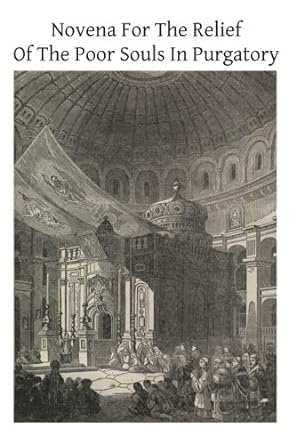







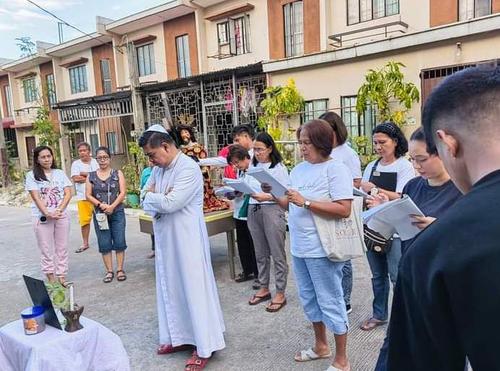


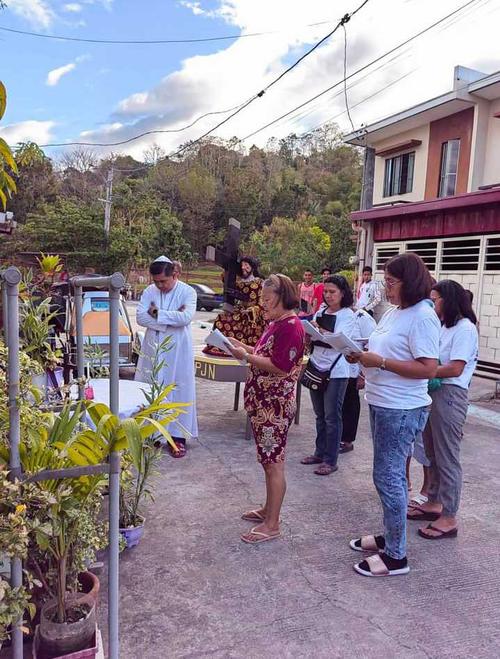



 Follow
Follow


